“I’m a Witness!” Who Helps the Police to Fabricate Drug Related Cases
Journalists from IStories and Meduza found more than 140 “regular” witnesses who testified in Moscow courts in the so called “drug” trials. They are the acquaintances of the policemen or those who are dependent from them. Despite gross violations of the law, the judges sent hundreds of people to jail
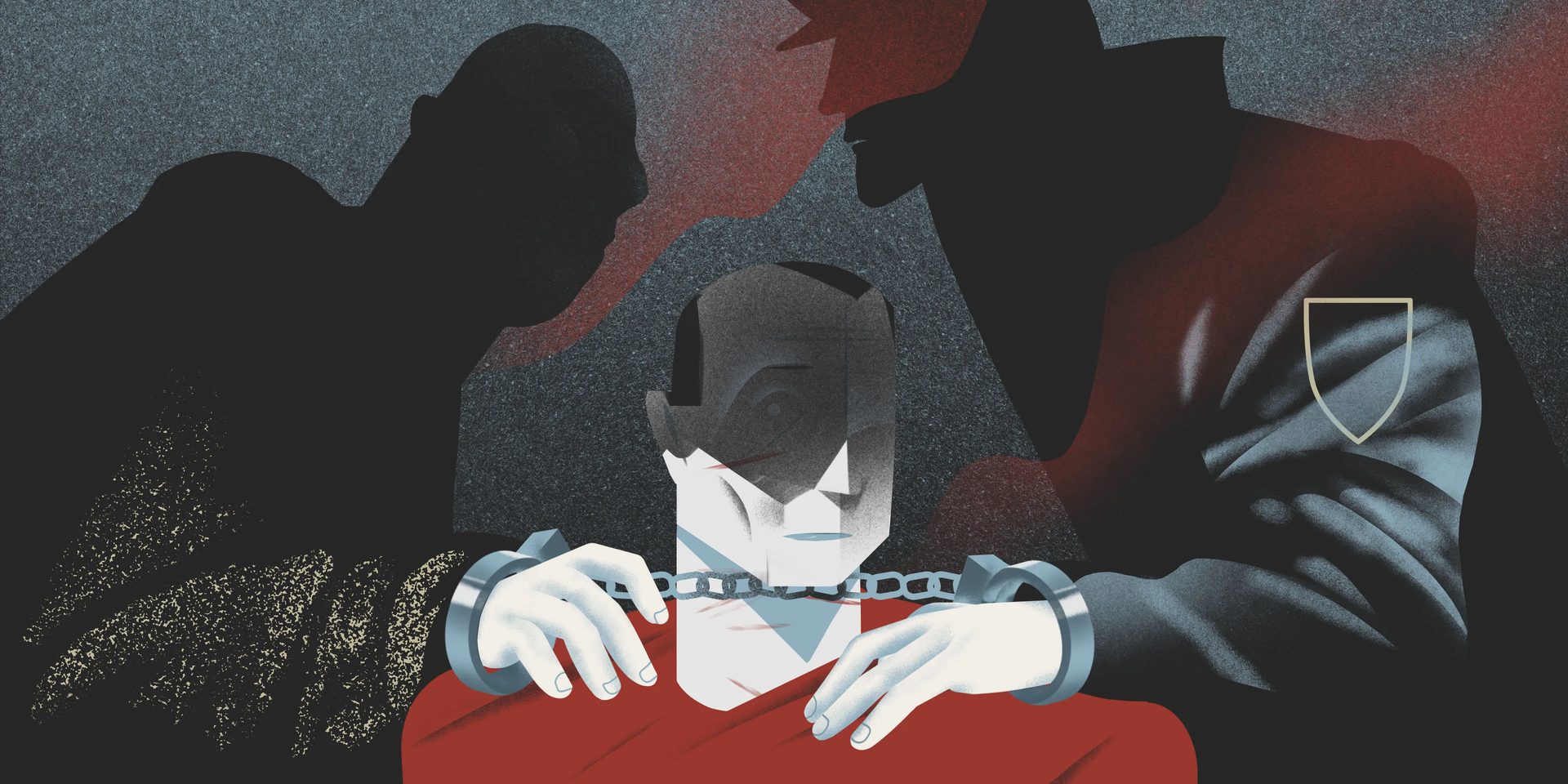
In May 2018, a 35-year-old Natalia Goloborodko turned to the Department of Drug Control of the Internal Affairs Directorate for the Western Administrative District to “expose the provider of illegal substances”. The police decided to conduct a “test purchase”: Goloborodko was offered to buy the substance from a dealer under the supervision of the operative officers. She agreed. The police found two police witnesses, and together they went to the house of the unemployed Nikolai Grigoriev, the “pusher” in question. As soon as the deal took place, the operatives detained the dealer. At the police station, money was seized from Grigoriev, allegedly received from Goloborodko for the drugs, and in his apartment, again in the presence of the police witnesses, they found MDMA, amphetamine and hashish. Nikolai Grigoriev was accused of two episodes of drug trafficking and one attempted drug deal. During the preliminary investigation, he confessed to everything.
But in the court of law, Grigoriev did not admit his guilt and explained that he had testified under pressure from the police, and Goloborodko had set him up. He said he knew her, but did not sell her amphetamine. The money that the police allegedly gave Goloborodko to buy drugs after rewriting the serial numbers of the banknotes, according to Grigoriev, was planted by the very operatives. Nikolai's mother and sister told the court that they “did not assume that he was selling drugs.” The only eyewitnesses to the crime were police officers, police witnesses and the purchaser Natalia Goloborodko. On August 1, 2019, the Kuntsevsky District Court found Nikolai Grigoriev guilty and sentenced him to 11 years in a colony with a strict regime.
Prior to the declaration of the verdict, Grigoriev was moved in a prisoner transport vehicle alongside with other defendants. Among them, he recognized a dark-haired man – one of the witnesses who, during the same “operation”, had to act as an independent observer, monitor the actions of the police officers, and make sure that no one planted anything in the suspect’s possession. He was later recognized as a 38-year-old Mikhail Rakhmankin, who at that time had already been convicted twice for dealing drugs on a large and significant scale.
Grigoriev then realized that this witness in his case was a decoy. Later, the witness was doing time with him on remand in the same prison and was also awaiting trial.
As the investigation of the Important Stories and Meduza has shown, Grigoriev's case is just a small fish in an ocean of falsifications in criminal cases on the “drag” convictions. We analyzed tens of thousands of sentences given in Moscow courts and found more than 140 “regular” police witnesses — familiar operatives, drug addicts or previously convicted people. The police officers used these people to fabricate criminal cases. Subsequently, despite the protests of barristers and solicitors, the judges sent hundreds of defendants in these cases to prison for many years.
“Forced to help to send down innocent people”
“When Grigoriev told me that he had met an police witness in his case in a 'Sweet box', I went through all the names of police witnesses in the Moscow City Court database. And it turned out that previously convicted Mikhail Rakhmankin is now under investigation for the illegal drug sale on a large scale. Same goes for the second witness. How can they be impartial?” – told the reporters Grigoriev's solicitor Andrei Tolstykh.
Mikhail Rakhmankin was not only convicted twice: a month before Grigoriev’ s arrest, he acted as a buyer in another case. Now he is doing time in a prison camp for selling drugs. According to Yekaterina Selivanova from the Andrei Rylkov Foundation for the Protection of Health and Social Justice, to whom the detained Mikhail Rakhmankin applied for protection. The evidence of his guilt was based on the testimony of police officers and a drug user detained the day before, as well as the data from the CCTV near the tube station. Rakhmankin and the defense insisted that it was impossible to identify someone on the tape, but in court one of the police officers testified that he had recognized Rakhmankin on the video by comparing the image with a photocopy of his passport.
“I know that he contacted the Internal Security Department [of the Moscow Main Internal Affairs Directorate], tried to cooperate with them, said that he had an information about the employees of the Internal Affairs Directorate for Western Administrative District. He hoped that they would be able to reach some sort of a deal and he would be given a lighter verdict. But this did not happen, he was sentenced for 11 years in prison” said Yekaterina Selivanova.
The second police witness in this case, Dmitry Chuprin, was also a drug user and an police witness in other cases of the “drug possession and dealing”, and after participating in Grigoriev's case, he was arrested by the same police officers. They found amphetamine in his hoodie: allegedly Chuprin “put” it there “for the purpose of personal use”.
Another police witness, Akop Khachatryan, told the court that on the night of Grigoriev’s arrest he was at a gas station in the Moscow region. There he was approached by police officers and asked to accompany them to the area of the Simferopol highway. He was asked be a witness while they would search for “stashes” (hidden places where the dealers leave the drugs for byers — Ed. note) in the forest together with the suspect Grigoriev, which he allegedly hid there with the intent of selling. Khachatryan did not refuse the police, although he actually was driving to his friend's birthday party. He told to the journalists of the Important Stories that he agreed due to “his upbringing”, since he “studied at the Russian Academy of Civil Service” and for him “it was something similar to a duty”. When asked if Khachatryan was already familiar with the police, he replied that he was not.
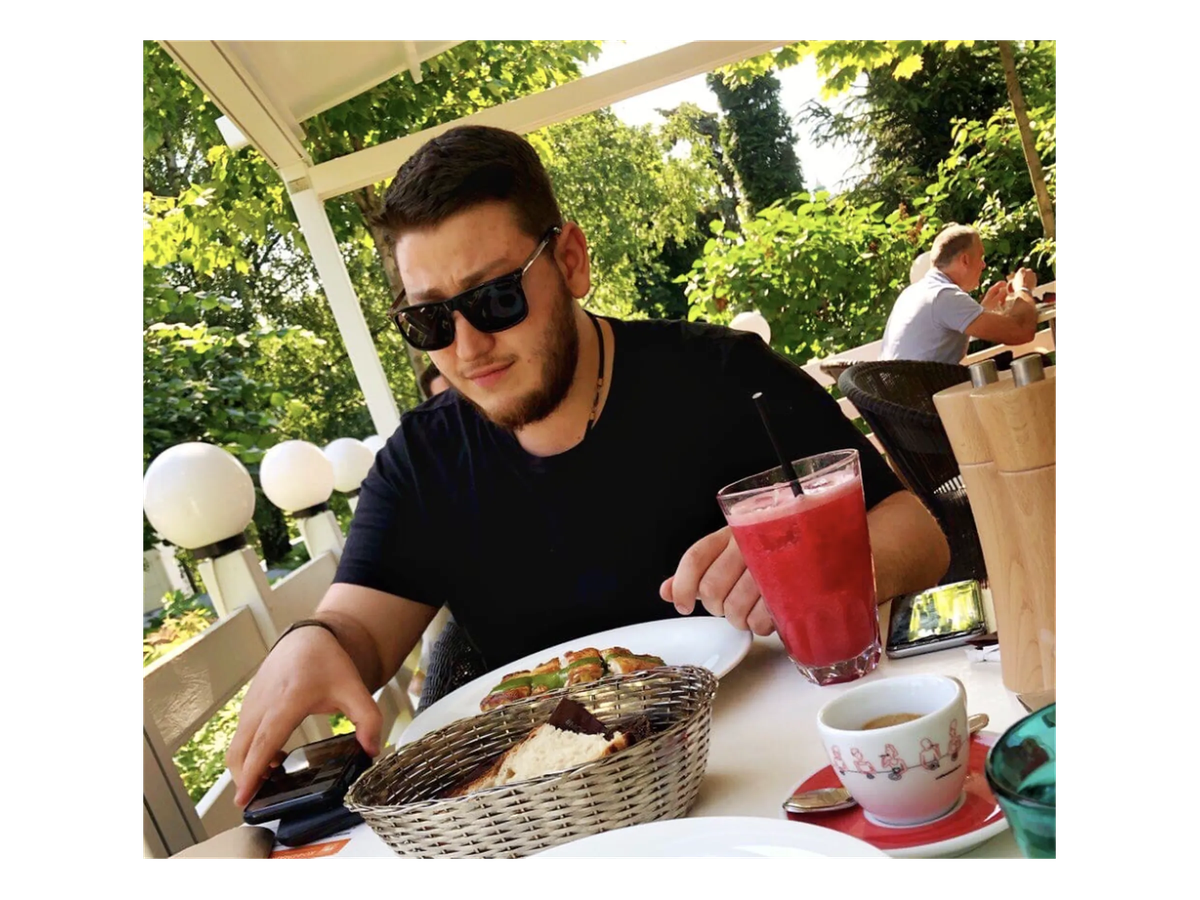
But, judging by the verdict on another case, a week before the incident, Khachatryan had already met the same policemen. In his testimony it is said that he was walking by the Western Administrative District station, when the police officers approached him and asked to be a witness during the search of the apartment and the body search of the suspect. Khachatryan agreed. Six months later, he turned to be a witness at least twice — on November 1 and 3, 2018. On the cases involving Khachatryan as a witness worked the same police officers: Maxim Umetbaev, Yegor Farmanin, Denis Konovalov and Akbar Sergaliev. When asked by journalists how, after all, Khachatryan could not have known them, he did not answer.
The “customer” in the Grigoriev’s case, Natalia Goloborodko, whose voluntary statement allegedly started everything, on the contrary, did not hide her acquaintance with the police officers. According to the version that she presented in a statement to the Internal Security Directorate of the Moscow Central Internal Affairs Directorate on May 19, 2018, at half past seven in the evening, Natalia was beaten near her house and then dragged to the car by two police officers, one of them was Yegor Farmanin. In the car, they allowed her to make one call. Natalia called her friend, another detective, Maxim Umetbaev. According to Goloborodko, he drove up to the place, talked to Farmanin for 10 minutes and took her to the Department of Ministry of Internal Affairs in the Kuntsevo district. There they found amphetamine in her purse.
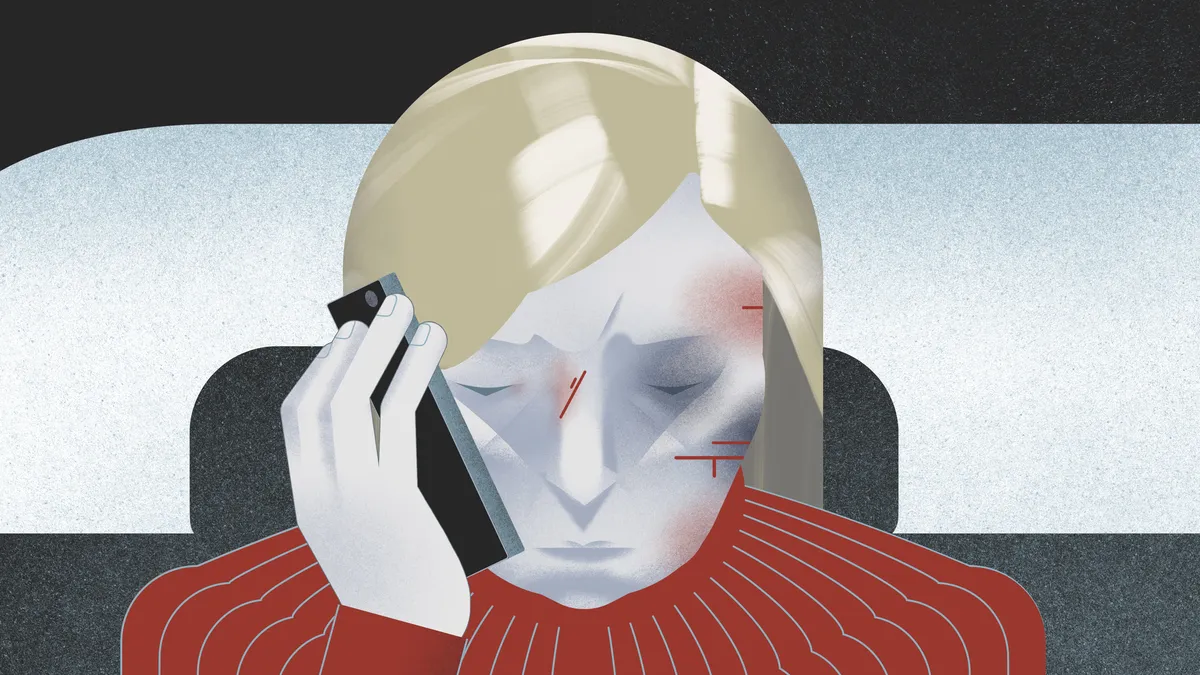
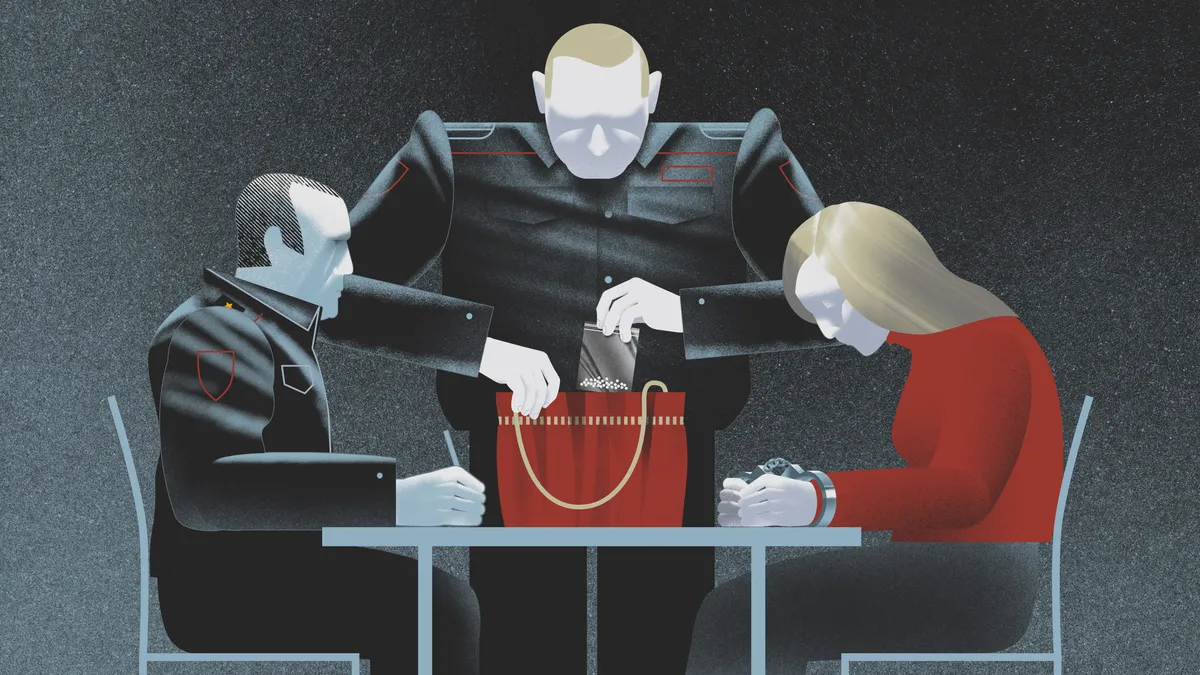
“Police officers, taking advantage of the fact that the charges and the threat of imprisonment are hanging over me, began to persuade me to provide them with assistance and cooperate with them. They’ve told me directly that if I refuse, they would put me in a prison, and if I agree, I would stay free. <...> I agreed. All this was supervised by Maxim Umetbaev. He told me to testify against Nikolai Grigoriev, and also to help in some other matter. I agreed, since I’m a parent and my son is a minor,” – Goloborodko wrote in a statement.
According to her, the police “fabricated all the evidences in relation to Grigoriev.” “I understand that if I do not report the criminal actions of the police, I will have to 'help' them to put innocent people in prisons,” wrote Goloborodko.
Already in the appeal, Grigoriev's barrister Andrei Tolstykh drew the court's attention to the fact that Goloborodko was a provocateur, and police witnesses Rakhmankin and Chuprin as informants for the police. “We were not even allowed to interrogate Rakhmankin in court. I suppose that he was more categorical and could say something wrong. The judge cynically declared to our face: 'Find him yourself and provide his attendance.' I again went to the court's website and saw that the same judge extended the time of Rakhmankin's detention literally on the eve of the court session. And now he invites us to look for him ourselves,” says the barrister.
Sergei Astakhov, the judge of first hearing, considered that “the defense's point that witnesses who took part in the body search were dependent on the police have not been confirmed in writing.” And when Grigoriev was tried in the Court of Appeal, the police officer Umetbaev and four other of his colleagues had already been suspended from work due to the charges of falsifying the case of Meduza’s journalist Ivan Golunov. As a result, in the appeal, Grigoriev was acquitted on two episodes out of three. Instead of 11 years in a prison camp with the strict regime, that the prosecution asked for him initially for selling drugs, Grigoriev was assigned to six years and six months of imprisonment. His barrister Andrei Tolstykh does not exclude that the court can reconsider its decision due to the high-profile case of Golunov.
“If I’ll be their witness, the police officers will be grateful to me”
On June 6, 2019, a year after Nikolai Grigoriev was arrested, police officers Igor Lyakhovets and his former subordinates Maxim Umetbaev, Roman Feofanov, Denis Konovalov and Akbar Sergaliev arrested Meduza’s journalist Ivan Golunov. Drugs were planted in his backpack, and then in his apartment. The police witnesses who were present at the operational-search measures (ORM) did not see any violations.
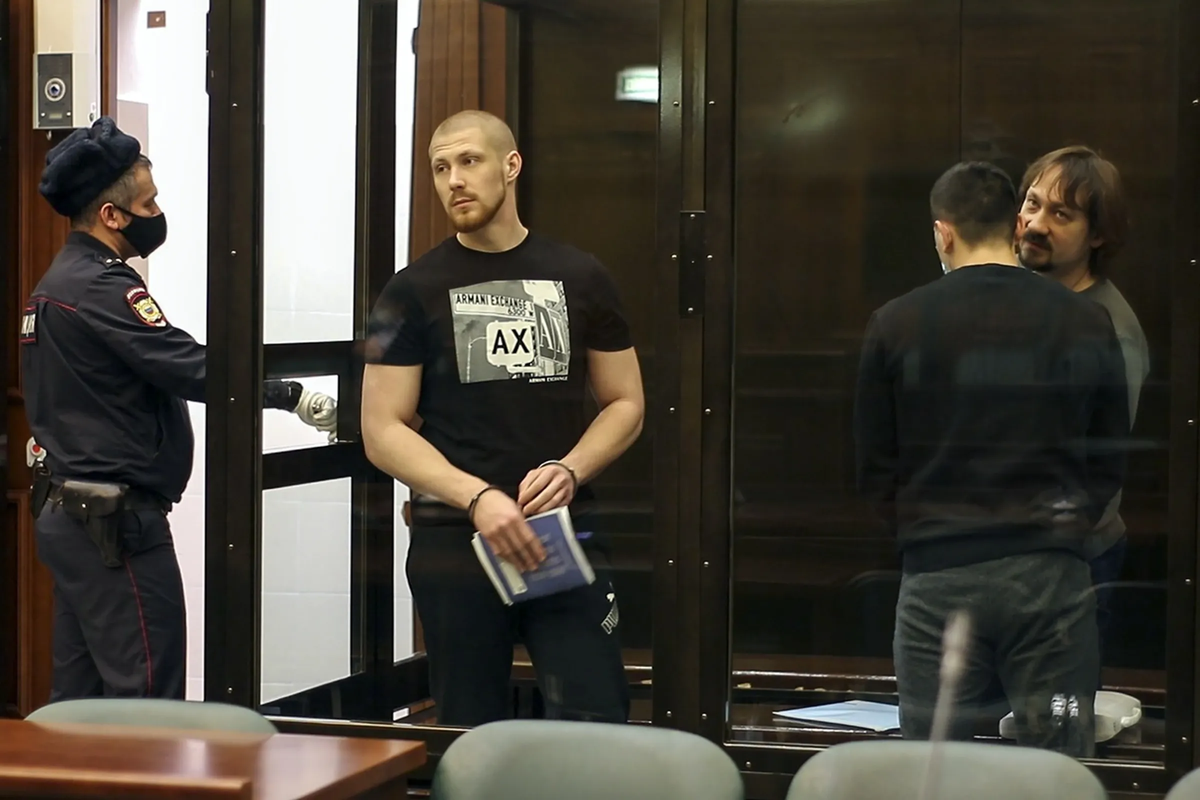
During the first interrogation of the police witness, Sergei Kuznetsov, who was present at the arrest, said that he was “at the scene of the crime” by accident: he just came for a walk in the center of Moscow. But at the further interrogations Kuznetsov gave different testimonies. According to him, on June 6, the drug control officer Yegor Farmanin, who had previously worked as a district police officer at his place of residence, called him and asked to be an police witness. “Yegor explained that if I’ll be their witness and spend my time on it, the police officers will 'be grateful to me'. The exact sum of money was not specified. Then, within half an hour, one of the policemen called me on my mobile, and said that I must get to the Tsvetnoy Bulvar tube station,” – as was written in the protocol of the Kuznetsov’s interrogation. Already in court, Kuznetsov said that the police had given him “from one and a half to two thousand” rubles for a taxi.
Sergey Kuznetsov is 25 years old. He grew up in a large family, works as a mechanic in Mosvodostok. According to him, he met the officer Farmanin five or six years ago. “I have a brother who was visited by an employee from the Commission on Juvenile Affairs. On one of his visits, the employee came together with Yegor [Farmanin]. He came to check up on our family, since my brother and I were on the list of registered offenders. Yegor then worked at the Maryino police station. After that, Yegor called me several times and asked to be a witness at the ongoing police investigations leaded by his colleagues. There were cases when police officers called me a taxi at their own expense.”
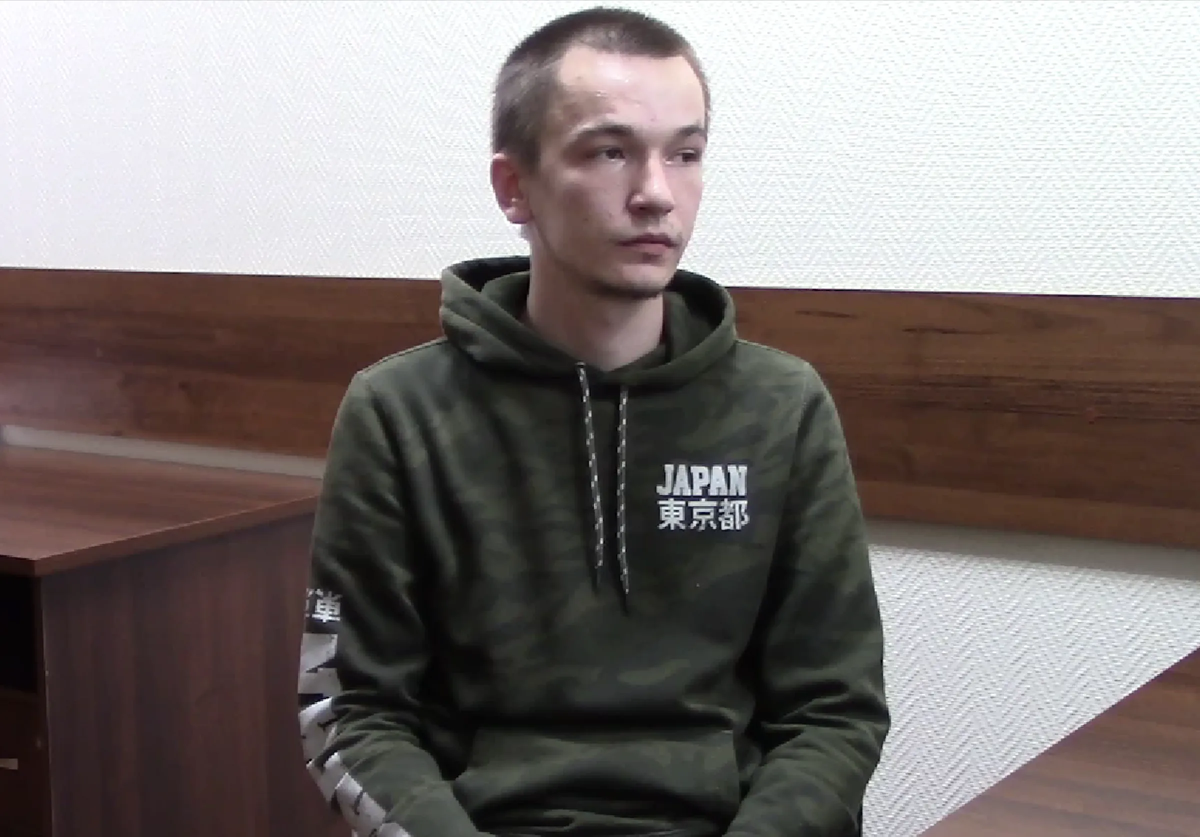
Officer Maksim Umetbaev later also admitted during interrogation that he had previously known Kuznetsov. According to him, Kuznetsov took part in the cases that Umetbaev and his colleagues were involved in.
Because of the arrest of Ivan Golunov, a large-scale public campaign began: people went out with pickets in front of the building of Ministry of Interior Affairs on Petrovka St., journalists and activists demanded his release. Reporters from the Dozhd TV channel came to the Kuznetsov's home and asked through the door if he knew these officers. In response, he threatened to call a police squad.
According to the case file, after the journalists' visit, Sergei Kuznetsov tried four times to call officer Farmanin. And immediately after that, for some reason, Akop Khachatryan called him — the same police witness from the Grigoriev case, who replied to the journalists of the Important Stories that he was a witness only out of a sense of duty and did not know the police officers in question. When asked why he called him, Khachatryan said that “this is some kind of misunderstanding,” and asked him not to bother him anymore. In the applications that can show by what name the mobile number is written down by other people, Akop Khachatryan's number is listed as “Akop GNC” (probably, it means the Main Department for Drug Control under the Ministry of Interior Affairs. – Ed. note), “GNC Black Armenian Kemerovo "and " Akop Cop".
On June 11, 2019, five days after his arrest, Ivan Golunov was released. Interior Minister Vladimir Kolokoltsev said that the case against him was dropped. And already on June 20, when Vladimir Putin was asked a question about the journalist's case during his annual direct line, the president replied: “We need to establish control over the activities of law enforcement agencies so that there are no offenses on their part. So that for the sake of the police reports and statistics people should not be imprisoned. So that there are no such cases as the case of the journalist you mentioned.” It turns out that the only witnesses in the case of Ivan Golunov, as in the case of Nikolai Grigoriev, were police officers and witnesses dependent on them. Golunov discovered that the use of so-called “regular” police witnesses is a frequent practice for the Department of Internal Affairs.
Our investigation proves that the scale of this problem is not limited to this particular police station. The police do not care about direct decrees of the president in almost every district station in Moscow: they are everywhere using people who are dependent on them or simply are their acquaintances to serve as the police witnesses.
How we looked for “regular” witnesses
To find suspicious police witnesses, it was necessary to find their names in the texts of verdicts or orders, and then to see if they can be found in other cases. Most of the said texts and rulings are published by Moscow courts in the public domain on the website of the Moscow City Court. Journalists of the Important Stories have downloaded 56,860 documents from there for the entire time under 12 so-called drug articles of the Criminal Code, namely: 228, 228.1, 228.2, 228.3, 228.4, 229, 229.1, 230, 231, 232, 233, 234.
In the texts of verdicts and rulings are usually mentioned the testimonies of witnesses, byers and police officers. Or at least the names of people and their role are named – if the case was not considered in a special order (If the defendant fully admits his guilt, he can file an application for the consideration of the case in a special order, that is, without examining the evidence in court. — Ed. note). Also, in most cases, secretaries replace names in the text with full name, full name 1, full name 2, etc. But not always.
In those cases where the names have been preserved, we have extracted them from the texts using programming and found the names and surnames that can be found in documents of various cases.
In our Workshop we’ve discussed how you can extract names from the texts using Python.
We managed to find 142 people whom the police recruited as supposedly independent witnesses. In fact, these people presented themselves as witnesses and buyers for at least several times. They could be tried under the same “drug” criminal court articles, be under investigation or suffer from drug addiction.
Aiming at that such police witnesses are no longer involved by police officers in operational-search measures, in addition to this text, we publish a complete list of all suspicious witnesses we found.
“Do you count how many times per minute you take a breath?”
A record number of “regular” police witnesses – 18 people – turned out to be connected with the Western Administrative District police station, whose officers arrested journalist Ivan Golunov, and before that, Nikolai Grigoriev. Immediately after the Golunov case, President Vladimir Putin dismissed the head of the Internal Affairs of the police station mentioned above, Andrei Puchkov, and five of his former subordinates are now on trial for abuse of power, fabricating evidence in a criminal case and illegal drug possession.
In second place is the Internal Affairs Directorate for the Eastern Administrative District (VAO): there are 13 police witnesses who more than once took part in the operational-search activities of the same police officers or were convicted. If you dig deeper in how and in what cases these witnesses were involved, it turns out that almost all of them, as an acting troupe, took turns working on investigative measures together with officers of the Internal Affairs Directorate. For example, Oleg Kokorev, judging by the texts of the sentences and decisions of appeal, was attested four times, twice as a purchaser, and once was conditionally sentenced to three years for the acquisition and possession of drugs on a large scale.
Kokorev at least three times crossed paths with other “regular” witnesses in different cases, which were conducted by the Department of Internal Affairs. In one case — with Pavel Ilyin, who not long before that himself received a year's probation for illegal acquisition and possession of drugs in a significant amount. In another – with two witnesses at once: Victoria Molokanova and Alexei Khrenov. The latter can be seen among the police witnesses in the record-holder case: in it we found at once four police witnesses who either took part in operational-search activities not for the first time, or they themselves were convicted under “drug” articles. Two police witnesses from this case crossed paths with each other in at least one more case. It turns out that at least seven police witnesses were linked to each other in four cases, which were lead by the same police officers. Yevgeny Matitsyn, an operative for the Eastern Administrative District, was involved in three of these four cases, Alexey Mazin and Vitaly Belikin in two. The Important Stories were unable to contact them.
The accused in these four cases were soon sentenced by Moscow judges to 8–12 years in prison.
Before the responsibility to investigate drug related cases was transferred to the Internal Affairs Directorate, this was done by special services for the districts under the Moscow Directorate of the Federal Drug Control Service (Federal Drug Control Service of the Russian Federation. The department was disbanded in 2016, instead of it is now the Main Directorate for Drug Control of the Ministry of Internal Affairs of the Russian Federation – Ed. note). In this the Service for the Eastern Administrative District, we’ve counted five “regular” witnesses. For example, the same Oleg Kokorev participated in cases that this department also investigated. The other four also crossed paths with each other on different occasions.
Almost all of the police witnesses refused to speak to journalists. Having learned about what the material was being prepared, they, as a rule, did not answer any more. Some briefly explained that they “no longer want to get into this.” But Ilya Oryol, who was at least six times attested at the request of the officers of the Service for the UFSKN and the Internal Affairs Directorate, nevertheless agreed to talk to the journalists.
Unlike many other police witnesses, Ilya never had a criminal record. He is 30 years old, judging by his profile on VKontakte, he graduated from the Moscow Polytechnic University and worked there as a technician in the protocol department, was a member of the youth political movement Nashi, created by the Presidential Administration of Russia.
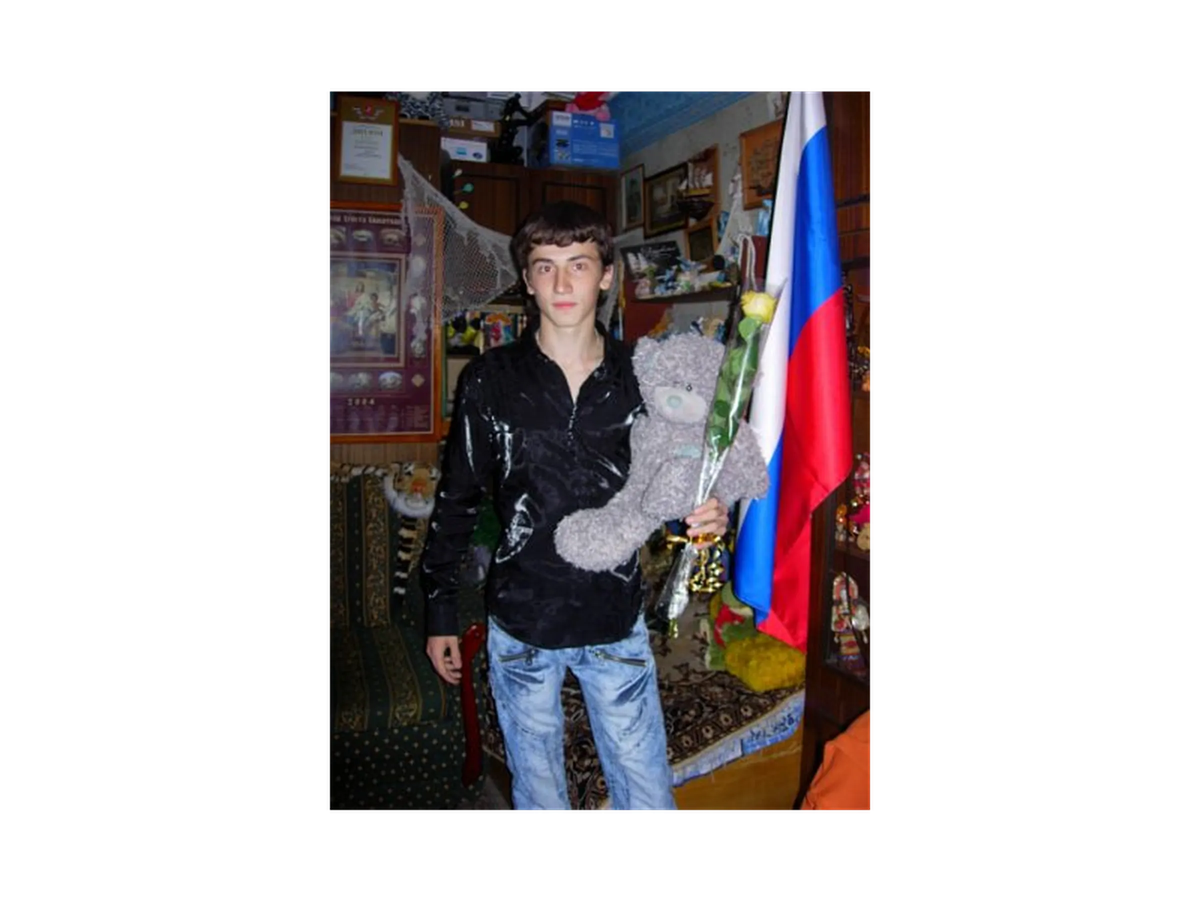
In the two cases in which Ilya Oryol was involved, the composition of the operatives, the prosecutor and the judge, completely coincided. Two more cases with his participation, which were conducted by the same operatives, were considered by the Perovskiy District Court on the same day. According to Oryol himself, he was a witness even more than six times – and not only in “drug” related cases, but also, for example, when “a person was detained in a state of alcoholic intoxication”:
— How many times have you been a police witness?
— I don’t know for sure. Do you count how many times do you breathe per minute?
— No, but it’s not exactly the same thing.
— What do you mean, not the same thing? There are some life situations that envelop you every day — most people do not notice them.
— That is, you act as a police witness every day?
— Not like every day. I don’t count how many times, I don’t give a heck about it.
Also in a conversation with Important Stories, Oryol argued that each meeting with the police officers happened by chance:
— Well, it's reasonable when you live or have some business near the police station.
— So you just live next to the police station and it turns out that way?
— In some moments — yes, in some — I went on business. I live, study, work — I have a police station nearby all the time.
According to Ilya Oryol, he personally does not know any of the operatives. For him, “a police officer is just a police officer.”
Judging only by court documents, then even more often than Oryol Yakob Cherny played the role of a police witness in Moscow and the region. Seven times he participated in the ORM of officers of the Internal Affairs Directorate for the North-Western Administrative District, the Office of the Federal Drug Control Service in this district and the city of Zelenograd. In total, we found 22 “full-time” witnesses at these departments in the North-West Administrative District.
In four cases, Yakob Cherny “worked” in tandem with police witness Alexei Sukhoparov. Together they took part in the same operational-search activities.
In 2016 at one of the court hearings on the “drug related” case, Cherny directly told the Butyrsky District Court that he had been a police witness more than once, and the defense had outlined this. But then the judge considered that “the participation of the said witness as a police witness during other procedural actions with the participation of the Federal Drug Control Service cannot prove that he gave testimony that does not correspond to the factual circumstances. As well as that he is interested in the outcome of the resolution of the case.” The defendant was found guilty and sentenced to 11 years in prison.
A year later, the case was returned by cassation of the first instance and was tried again by another judge. This time in Cherny's testimony it was said that “earlier the police officers V.V. Gaidukov and F.N. Gorchakov did not know him.” Although, as follows from the texts of the verdict, at that time he was at least three times a police witness at their request. One of the police officers, F.N. Gorchakov, even testified that “during the search of the buyer the police witness Cherny Y.A., who was familiar to him, took part and showed reasonable initiative and provided free assistance in exposing drug traffickers. Earlier Cherny Y. A. participated in 2-3 such operations.” These contradictions in the testimony of the investigator and the police witness did not bother the judge. The defendant was nevertheless sentenced to 10 years and 9 months in prison. A year later, Cherny again testified in the role of a police witness — this time in a different case, but at a hearing headed by the same judge.
At the time of publication, the press service of the Main Directorate of the Ministry of Internal Affairs of Russia did not respond to a request from journalists.
“And the judge hears all this”
As a rule, barristers draw the attention of the court to suspicious police witnesses. Nikolai Grigoriev's barrister Andrei Tolstykh tried to do this as well: “The judge, by his silence, allows the case to be made even worse next time. I said in court that it’s a matter of time before it will turn into a huge problem.”
The barristers did not remain silent either in the case-record holder in terms of the number of “regular” police witnesses, who were dealt with by officers from the Internal Affairs Directorate. In this case, in 2016, five accused of illegal sale of psychotropic substances by an organized group received from 10 to 12 years in prison each. At the same time, at least four witnesses in the case have already been involved by the officers of the Internal Affairs Directorate as police witnesses or have been tried under “drug related” articles. The buyer was also previously convicted and several times collaborated with the police on the “test purchases”. Another police witness said during the trial that he did not remember anything because he was under the influence of drugs.
All barristers tried to draw attention to this, says Vitaly Sych, the representative of the defense of one of the defendants, Manuchar Atayan, who according to the investigation, was the organizer of a criminal group.
“We reported that the witnesses are familiar with the investigator, that they may depend on the investigator for other cases. They told the judge that the police witnesses were already at his meetings on other cases, – Sych recalls. – As a rule, the court answered that it was irrelevant to the case. In my practice, such situations sometimes reached the point of absurdity. The person was asked: 'Well, how could you be present at this inspection, if 10 minutes ago you were present at another inspection in the other end of Moscow?' And the judge hears all this. But apart from the fact that all this is being voiced, nothing else happens. The court accepts such witnesses.”
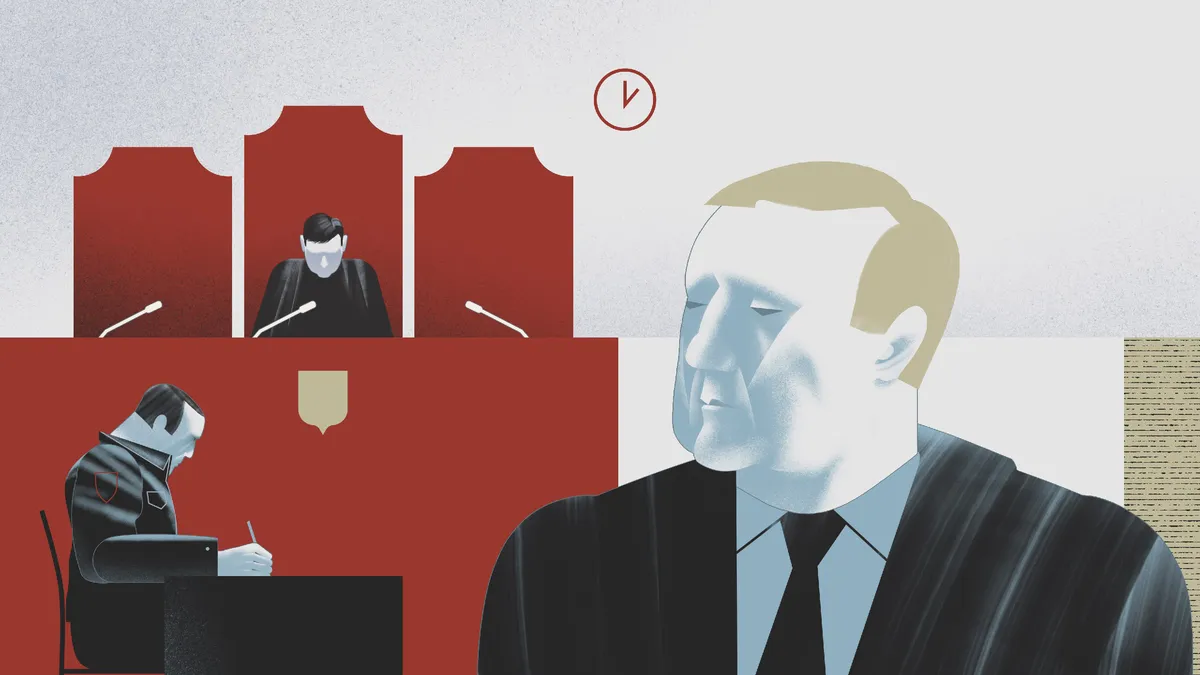
As a rule, whenever barristers point out that police witnesses were in a state of a drug intoxication, worked at the direction of operatives or were detained by them the day before, the judge announces that the defense's opinion has not been confirmed by anything and there is no reason to doubt the testimony of the witnesses. Moreover, the judges themselves often meet the same witnesses at their sessions.
Even in the small volume of court documents where the names of the police witnesses and purchasers were preserved in the text, we found at least 38 cases when the judges saw the police witnesses not for the first time, but did not react to it in any way.
Most oftenly (according to the court verdicts at least 11 times), the judge of the Nagatinsky District Court Anton Filatov took the testimony of the “regular” police witnesses and then passed the guilty verdict. So, judge Filatov saw attending attesting Cherkasov A.O. at the meeting at least three times. On two occasions Cherkasov was a police witness to the same operative officers of the Russian Ministry of Internal Affairs in the Tsaritsyno district. The texts of the sentences contained the same wording: “the guilt of the defendant is confirmed <...> by the testimony of the witness A.O. Cherkasov on the basis of h his participation as a police witness <...> gave testimony similar to the testimony of the witness [name of the operative officer].”
In the same two cases, together with Cherkasov, another police witness took part – Degtereva E.S. In one case, she, like Cherkasov, gave “testimony similar to the testimony of [the name of the operative officer].”
In the Simonovskiy District Court, several judges could have seen the same witness at their sessions in different cases: Aleksey Gumbatov appeared in at least six “drug related” cases as a buyer or a police witness. Judges Svetlana Tumanina and Natalia Repnikova saw him at least twice. The latter is known in connection with the decision to replace the conditions of the verdict to Alexei Navalny with a suspended sentence for a real one in the “Yves Rocher case”.
Already in the appeal in one of the cases with the participation of Gumbatov, the defense in its statement indicated that not only Gumbatov, but also the second police witness, “who had repeatedly taken part in the operational-search measures carried out by the police, illegally participated in investigative measures as police witnesses”. The court decided that the credibility of the testimonies of these police witnesses and the police officers was not in doubt, since they were “consistent with each other”.
The Simonovskiy District Court did not respond to the Important Stories’s request. In the Nagatinsky District Court, we were told that “the assessment of the information provided by the witness is given by the court in conjunction with all the evidence in the criminal case, taking into account the rules for assessing evidence established by the Code of Criminal Procedure of the Russian Federation.”
“Have you run out of drug addicts in the area?”
“Established” witnesses in drug related cases are attracted not only by Moscow operative officers – this can be called an all-Russian practice. For example, in Samara, six police officers massively falsified criminal cases for two years. In this they were assisted by at least 15 police witnesses, most of them were convicted under the same “drug related” articles. In order not to get another term, they signed any protocols at the request of the police.
Now these police witnesses are being tried along with operative officers: they are accused of falsifying criminal cases, and these officers are also accused of exceeding their official powers. Officially, there are 17 victims so far in this case. But, according to the barrister of the human rights organization “Public Verdict” (“Obshestvenniy Verdict” – Ed. note) Dmitry Yegoshin, in fact there may be about a hundred victims. Most of the victims are still serving sentences in the prison camps, several people have already died.
“The police invited drug addicts they already knew. The roles were assigned: you will be a police witness, you will also be a police witness, and you will be a buyer. Then the citizen was detained, documents were drawn up, and he was taken for interrogation. And then the materials went to the investigator. And that's all – the case is sewn, — says Yegoshin. — The police witnesses said that they were repeatedly detained by these police officers or lived in their area. They said during interrogations: 'I am a person dependent on this policeman. I was afraid that if I refuse, then there will be a case against me filed.'”
Many barristers are convinced that the institution of police witnesses in Russia is a big problem. It needs to be changed, like the entire evidence system in drug related cases.
“Cases are fabricated just with a slip of the finger: interrogation, examination – and the person is been found guilty. I would like to believe that the '[Samara] case' will help somehow influence this issue,” solicitor Dmitry Egoshin hopes.
“Witnesses are required at almost every operational activity, and it’s not so easy to find them either,” says barrister and former investigator Vitaly Sych. “And if an honest officer doesn’t present a single solved case in a month, the boss will come to him and remind him of the annual plan: “ Have you run out of drug addicts in the district? Is he the most revealing of yours, perhaps, my friend? You put two witnesses in the 'Sweet box', and let them ride with you. And look! Therefore, cases of abuse the law are quite common here. Operative officers who deal with the issue of drug trafficking use their witnesses: those who were previously arrested, for example. As a rule, drug addicts are attracted who for a small dose are ready to tell that they have been everywhere, have seen everything. As the saying goes: 'Who is the witness? I am a witness!'”
With police witnesses who are easily found and ready to confirm anything, it is very easy for the police officers to falsify drug-related criminal cases – this is confirmed by many barristers and solicitors. Not least thanks to docile “regular” witnesses, “drug related” articles are becoming “popular”: according to the judicial department at the Supreme Court of Russia, over the past five years almost half a million people have been convicted of them.
Featuring Ivan Golunov (Meduza)
Editors: Alexandra Zerkaleva, Roman Anin
